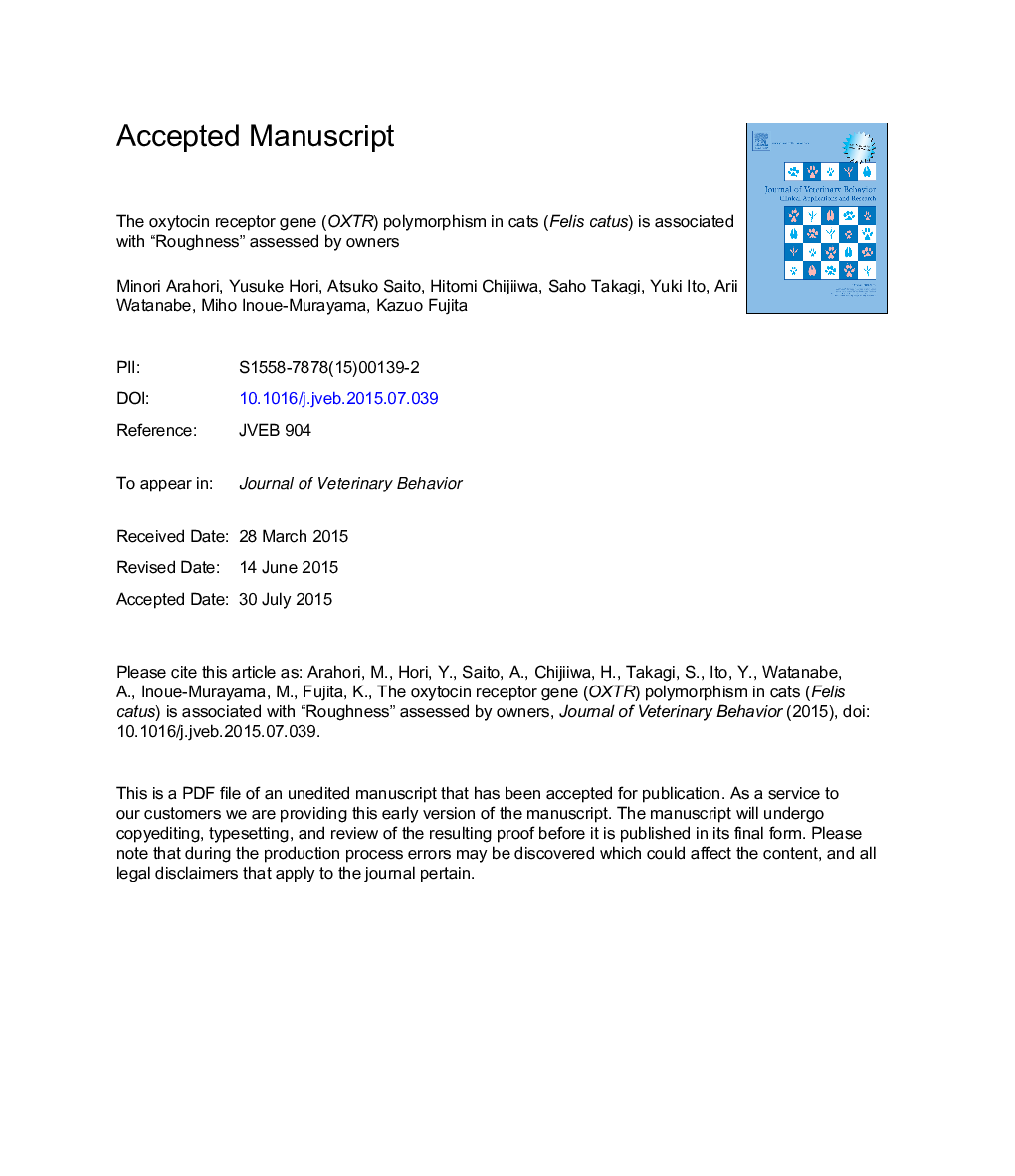| Article ID | Journal | Published Year | Pages | File Type |
|---|---|---|---|---|
| 8484333 | Journal of Veterinary Behavior: Clinical Applications and Research | 2016 | 34 Pages |
Abstract
Polymorphisms of the oxytocin receptor gene (OXTR) have been hypothesized to correlate with social behavior in humans and other mammals. We examined the relationships between owner-assessed personality and OXTR polymorphisms in cats, which have long history of domestication by humans. We analyzed the exon1 region of OXTR in 94 DNA samples (57 males and 37 females) and found 3 single nucleotide polymorphisms. We focused on the G738A polymorphism. Questionnaires containing 30 questions with 6-point scales were completed by the cats' owners. Factor analysis for the scores identified 4 factors, which we named “Openness,” “Friendliness,” “Roughness,” and “Neuroticism.” A generalized linear mixed model analysis revealed that cats with the A allele in the single nucleotide polymorphism G738A showed significantly higher roughness scores than cats without the A allele. After dividing cats into 4 sex à neutering groups, only neutered females showed the significant difference between the A allele carriers and non-A allele carriers in roughness scores. Age also affected personality: younger cats showed much higher openness scores, whereas older cats showed higher roughness scores. This study shows that genetic variation in cats may be linked to their personality traits, a finding that may be useful from the viewpoint of companion animal welfare; for example, to match potential good owners and cats using genetic information.
Related Topics
Life Sciences
Agricultural and Biological Sciences
Animal Science and Zoology
Authors
Minori Arahori, Yusuke Hori, Atsuko Saito, Hitomi Chijiiwa, Saho Takagi, Yuki Ito, Arii Watanabe, Miho Inoue-Murayama, Kazuo Fujita,
